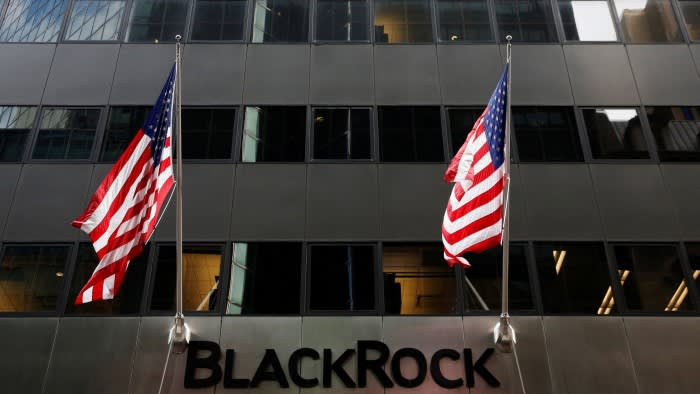Stay informed with free updates
Simply sign up to the Climate change myFT Digest — delivered directly to your inbox.
BlackRock funds with specific climate change mandates will vote differently on shareholder proposals than the rest of the $10.5tn money manager’s holdings, in its latest effort to deal with the political split over decarbonisation.
The world’s largest asset manager said on Tuesday that its new policy would allow clients in climate-focused funds to take an activist position on shareholder proposals about decarbonisation.
All BlackRock funds consider climate as a risk factor affecting financial performance. But those funds that follow its new “climate & decarbonisation stewardship guidelines” will consider whether companies are actively trying to limit the average global temperature rise to 1.5C above pre-industrial levels, set down as an ideal threshold in the Paris Agreement between almost 200 countries.
BlackRock chief executive Larry Fink was a vocal early supporter of including sustainability in investing, highlighting climate change in his 2020 annual investor letter, but has since come under attack from all sides.
The new stewardship policy is BlackRock’s attempt to balance the demands of European and US clients who want it to push for decarbonisation, with US laws that require fund managers to prioritise financial returns.
The policy will start applying to 83 funds, all domiciled in Europe, with $150bn in assets, in the fourth quarter, Joud Abdel Majeid, BlackRock’s global head of stewardship, wrote in a letter to clients.
While many European investors and progressives want to press ahead as quickly as possible to limit global warming, there is a growing backlash among US conservatives who decry the push as “woke capitalism”.
The boards of US and Asian funds that have a specific climate change mandate will be asked if they want to adopt the policy later this year. BlackRock also plans to offer the climate-related option to clients who invest through separately managed accounts.
“For all other funds, BlackRock will continue to undertake our stewardship responsibilities with a sole focus on advancing clients’ long-term financial returns in line with our benchmark policies,” Abdel Majeid wrote.
As a result, the climate-focused funds may take opposite positions from the rest of the group on company votes about fossil fuel and other subjects related to decarbonisation. They will otherwise follow BlackRock’s main guidelines on other environmental, social and governance issues.
In the past two years, since the jump in energy prices following Russia’s full-scale invasion of Ukraine, BlackRock has been at the centre of a political fight as conservatives sought to boycott or ban its products. At the same time, climate advocates complained when its support for climate- related shareholder resolutions fell sharply.
The asset manager has since said many recent company shareholder proposals were too prescriptive and not in the financial interest of its clients.
Earlier this year, BlackRock scaled back its involvement with Climate Action 100+, an investor group set up to prod companies over global warming. It pulled out as a global participant and transferred membership to its smaller international arm.
BlackRock has also begun to allow institutional clients and some retail investors to direct how their shares will be voted on proxy questions.
Its “voting choice” programme lets investors opt for one of more than a dozen policies formulated by proxy advisers Institutional Shareholder Services and Glass Lewis, or to entrust BlackRock with their vote.
Climate Capital
Where climate change meets business, markets and politics. Explore the FT’s coverage here.
Are you curious about the FT’s environmental sustainability commitments? Find out more about our science-based targets here


